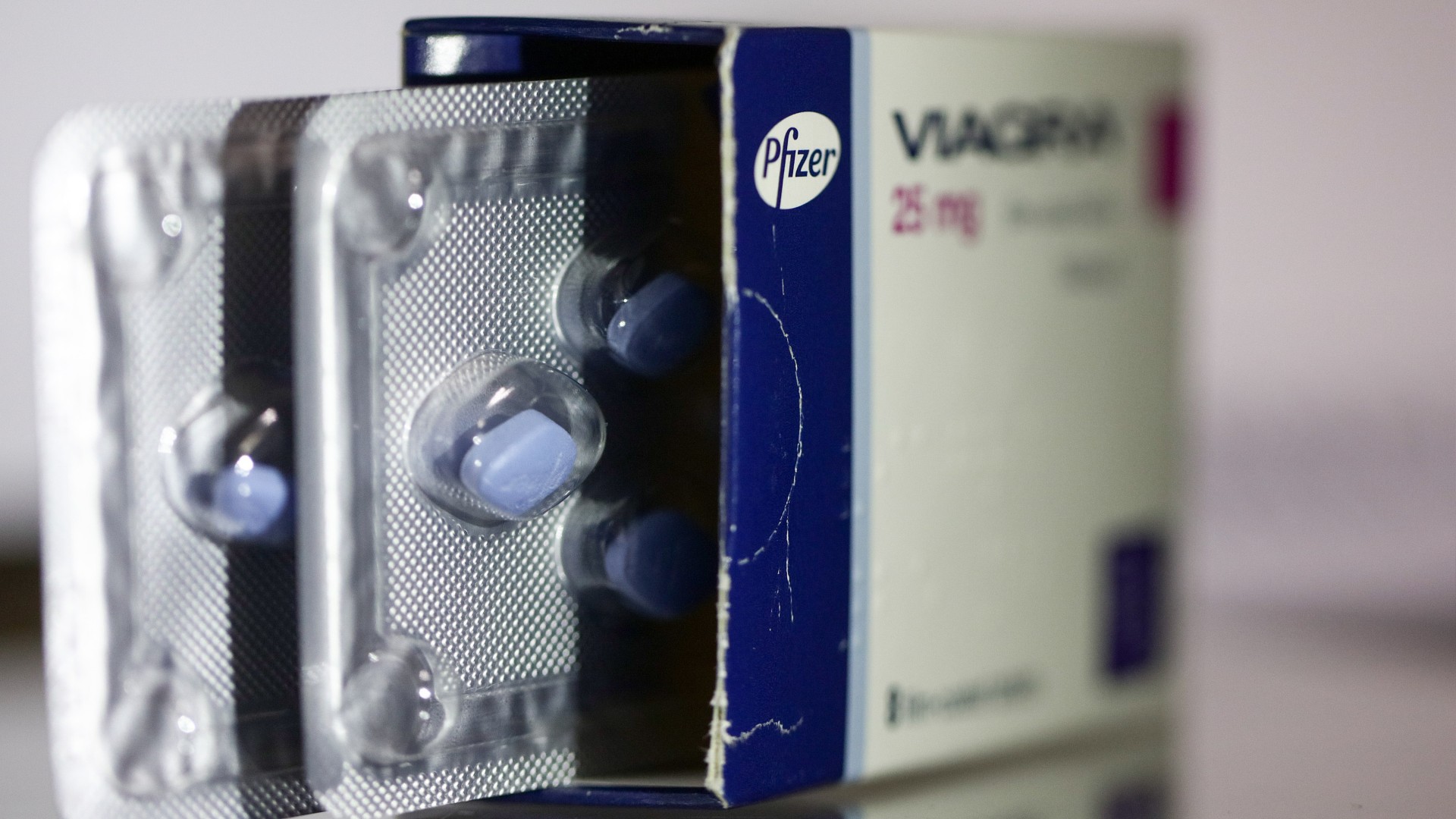Active ingredient in Viagra tied to lower Alzheimer's risk — but don't get too excited
Once more, sildenafil, the main active component of the "little blue pill," has been found to be associated with a reduced risk of developing Alzheimer's disease.

A new, large observational study has freshly stoked the debate as to whether taking sildenafil, the active ingredient in the erectile-dysfunction drug Viagra, can help ward off Alzheimer's disease.
The study included an analysis of insurance claims data from more than 2 million patients with pulmonary arterial hypertension, a form of high blood pressure in the lungs. It revealed that people who took sildenafil — which is used to treat this condition under the brand name Revatio — had a 30% to 54% lower risk of developing Alzheimer's, compared with patients who took four other types of blood-pressure drugs.
In separate lab experiments, the researchers grew neurons from stem cells donated by patients with Alzheimer's and exposed them to sildenafil for five days. Following treatment, the team measured the cells' levels of phosphorylated tau, a protein that accumulates in the brains of people with Alzheimer's and is believed to partially drive the disease. They found that the tau levels fell steadily as the amount of sildenafil increased.
The sildenafil-treated neurons also switched on genes tied to nerve growth and reduced inflammation. In their new paper, published March 19 in the Journal of Alzheimer's Disease, the scientists concluded that sildenafil could be a "potential repurposable drug" for this form of dementia.
But according to the researchers and other experts, more research is warranted.
Related: Alzheimer's may be caused by immune cells thinking brain cells are bacteria, expert says
Over the past two decades, numerous animal studies and observational studies in humans have demonstrated this potential link between the little blue pill and Alzheimer's disease risk. However, the jury is still very much out on whether and how it works.
Sign up for the Live Science daily newsletter now
Get the world’s most fascinating discoveries delivered straight to your inbox.
Scientists don't yet understand the physiological mechanism by which sildenafil could impact brain disorders like Alzheimer's, but several suggestions have been made. For example, sildenafil works by relaxing blood vessels and increasing blood flow by inhibiting an enzyme called phosphodiesterase 5. In the case of Viagra, this helps users maintain penile erections, whereas for Revatio users, it helps to lower blood pressure. In theory, sildenafil might somehow increase blood flow to the brain and thus help clear proteins associated with Alzheimer's, such as phosphorylated tau.
However, other observational research in humans has put a damper on this idea, hinting that these kinds of drugs may not have any effect on the disease.
"While sildenafil can reach the brain, it is questionable if the dose taken and the time course over which the drug was taken can impact on long term changes in brain function that lead to Alzheimer's," Mark Dallas, an associate professor in cellular neuroscience at the University of Reading in the U.K. who was not involved in the research, told Live Science in an email.
Aspects of how the recent Journal of Alzheimer's Disease study was conducted also cast doubt on the findings.
For example, although the authors tried to account for some factors that could influence the development of Alzheimer's — such as sex, age and comorbidities — they didn't consider factors like genetics and socioeconomic status. This may have biased their findings. The authors also treated the neurons in the lab with really high, and potentially unrealistic, doses of sildenafil that were around 1,000 times greater than the amount thought to be able to reach the brain.
Definitively proving that taking sildenafil reduces the risk of Alzheimer's disease will require large, clinical trials that include a control group that is appropriately matched to treated individuals in terms of age, sex and medical history. This will allow scientists to paint a clearer picture of the true, potential brain-protecting effects of the drug, as well as any potential side effects it may have.
"The idea of repurposing drugs for dementia is tantalizing," Dallas said. "However there is a need to carry out well designed clinical trials to provide the robust evidence base needed to add sildenafil to drugs that can manage Alzheimer's disease."
This article is for informational purposes only and is not meant to offer medical advice.
Ever wonder why some people build muscle more easily than others or why freckles come out in the sun? Send us your questions about how the human body works to community@livescience.com with the subject line "Health Desk Q," and you may see your question answered on the website!

Emily is a health news writer based in London, United Kingdom. She holds a bachelor's degree in biology from Durham University and a master's degree in clinical and therapeutic neuroscience from Oxford University. She has worked in science communication, medical writing and as a local news reporter while undertaking NCTJ journalism training with News Associates. In 2018, she was named one of MHP Communications' 30 journalists to watch under 30. (emily.cooke@futurenet.com)










